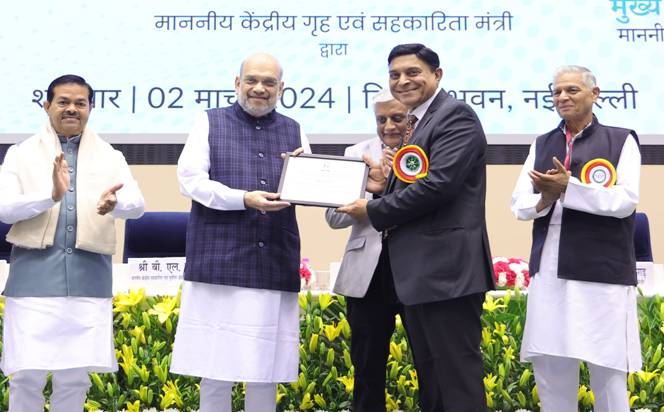- The Union Home Minister and Minister of Cooperation officially opened the National Urban Cooperative Finance and Development Corporation Limited (NUCFDC), a watershed moment in the history of urban cooperative banking.
About NUCFDC
- The RBI has approved NUCFDC to function as a Non-Banking Finance Company (NBFC) and the top body for urban cooperative banking.
- Self-Regulatory Status: NUCFDC has also been designated as a Self-Regulatory Organisation (SRO) for the sector, allowing it to manage and control many elements of urban cooperative banking activities.
- Capital Enhancement: NUCFDC intends to expand its capital base, with a capitalization target of Rs. 300 crores, to promote and improve Urban Cooperative Banks (UCBs).
Functions of NUCFDC
- NUCFDC aims to improve the financial capacities of UCBs by developing a shared technology infrastructure for better service delivery and lower operational expenses.
- Comprehensive Support: In addition to providing financial liquidity and capital support, NUCFDC will provide a collaborative technological platform that all UCBs can use to grow their service offerings efficiently and inexpensively.
- Advisory Services: NUCFDC will also provide advisory and consultant services to UCBs, including fund management, regulatory compliance, and strategic development.
About Urban Cooperative Banks (UCB)
- Origins: UCBs have their roots in cooperative credit societies, which provide financial services to members of specific community groups.
- Regulations: UCBs are subject to strict prudential regulations and guidelines set by the RBI under the Banking Regulation Act of 1949 in order to maintain financial stability.
- Operational Classification: UCBs are divided into urban and rural cooperative banks based on their geographical scope. They are governed by State Registrars of Cooperative Societies (RCS) or the Central Registrar of Cooperative Societies (CRCS), as well as the Reserve Bank.
- Historical Evolution: UCBs have evolved throughout time, beginning with the founding of Haryana’s first Cooperative Credit Society in 1904 and progressing through regulatory modifications and institutional reforms.
Reforming the UCBs
- The Narasimham Committee Report (1998) proposes reforming the UCBs. It suggests future regulatory initiatives to improve UCB governance, capitalization, and operational efficiency.
- Structural Recommendation Committee (2021): A committee created by the RBI in 2021 has advocated the development of a 4-tier structure for UCBs in order to streamline their operations and provide efficient regulatory monitoring based on deposit size tiers.
- Tier 1 includes all unit UCBs and salary earner UCBs (regardless of deposit size) and all other UCBs with deposits of up to Rs 100 crore.
- Tier 2 deposits range from Rs 100 crore to Rs 1,000 crore,
- Tier 3 deposits between Rs 1,000 crore and Rs 10,000 crore, and
- Tier 4 deposits above Rs 10,000 crore.
Challenges Faced by UCBs
- UCBs face challenges in capital mobilisation due to legal restrictions on dividend distributions and limited opportunities to raise external cash.
- Diversity Obstacles: The lack of operational diversity and reliance on member contributions for capital infusion jeopardise UCBs’ financial resilience and growth potential.
- Access to alternate finance sources remains limited for UCBs, necessitating novel techniques to meet liquidity requirements.
- Profit Distribution Dynamics: Incentives for profit distribution are low in UCBs, reducing their appeal to investors and impeding their growth trajectory.
- Solvency Pressures: Expansion and acquisitions can put a strain on UCB solvency and liquidity, necessitating smart risk management and strategic planning.
Source: https://pib.gov.in/PressReleasePage.aspx?PRID=2010885#:~:text=The%20Union%20Home%20Minister%20and,of%20State%20for%20Cooperatives%20B.L.

